JOURNEY WITH JESSICA
Healing Prayers and Disabled Bodies
After my first guide dog, Hope, died it took me a while to befriend my cane and venture out into the world again. My first trip out was to meet up with some knitting friends in Seattle’s University Village Barnes and Noble. As I cautiously used my cane to locate the entrance of the building, I was stopped by a woman with a stroller. She wanted me to know of God’s healing power and asked if she can lay hands on me and anoint me so that I would see. I am appreciative she asked before she did it as not everyone does, and I am also glad I had done extensive healing work from prior religious trauma, so I was able to say: “No thank you. God and I think I’m ok just as I am.” This was not the first time I was approached by a drive-by prayer warrior. However, I was proud of myself and my confidence in my relationship with God, as this was the first time I was able to separate my relationship with God from people claiming to speak in the name of God.
Since every visibly disabled person I know has had experience with these drive-by prayer warriors, I was surprised to find out this was an unknown phenomenon for non-disabled people. I recently went to a workshop on church hurt and was surprised unsolicited healing prayers was not even mentioned in the workshop. This is a major barrier keeping disabled people out of church as churches don’t feel safe when our God-given bodies are considered unworthy, cursed, or otherwise needing correction. Most of the time disabled people accosted by random prayer warriors feel trapped and inherently wrong, shamed for existing in their body. As my paraplegic friend says: “If God wanted to make me walk, he would have done so already. I don’t need anyone else rubbing it in my face that I can’t walk and in this world’s view, I’m insufficient.”
Amy Kenny addresses these people in her book My Body is not a Prayer Request:
“Perhaps instead of trying to pray away the cane, prayerful perpetrators should ensure that buildings are accessible to me. Perhaps instead of focusing on my body as less valuable, prayerful perpetrators should repent for the ways the church perpetuates the sin of excluding disabled people. Perhaps instead of immediately dismissing my body as less valuable, prayerful perpetrators should wonder how my disabled body displays the image of God to our community. Perhaps instead of always attempting to cure, prayerful perpetrators should yearn for holistic healing.”
Prayer can and should be a beautiful thing. I pray regularly for those I know along with the needs of the world. When I pray intercessory prayers, especially with another present, I first ask what they would like to be prayed for. A person with a disability has as many dimensions in their life as another person. Many of us are content with how God made us, but we might desire prayer for someone to take us to church. We might be struggling with a hurt relationship or desire peace of mind. I always go back to Jesus asking Bartimaeus “What do you want?” Asking gives agency and honors the individual’s dignity and full personhood.
The second week at a new church I was attending, I came in with a large purple bandage wrapping my leg. I’d spent the morning in urgent care, getting treated for a dog bite. The woman sitting next to me asked about my bandages during the church service. I told her my neighbor’s dog bit me, though the more difficult part of the conversation was still to come—having a discussion with my neighbor. After the service the woman came up to me, explained that she had taken a class and learned she had a gift for healing prayers and asked if I would like prayer and anointing… for the bite injury and the discussion with my neighbor. I took a deep breath, smiled, and told her that would be lovely. For the first time in my memory, I was welcomed into a community through the act of healing prayer instead of feeling my existence was an aberration needing to be cured.
Bridge Blogger Jessica Thompson
Categorised in: Journey with Jessica
